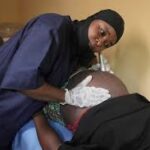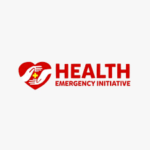Maternal and Child Health in Africa: Challenges & Progress

Maternal and child health is one of the most important indicators of a nation’s development. In Africa, significant progress has been made over the last two decades, with maternal and child mortality rates declining thanks to improved healthcare access, vaccination programs, and international support. Yet, challenges remain. Every year, thousands of African women die during pregnancy or childbirth, and millions of children under five lose their lives to preventable causes. Addressing these challenges is vital for building a healthier and more prosperous Africa.
The Current Situation
-
Maternal Mortality: Africa accounts for about two-thirds of all maternal deaths worldwide. Most of these deaths are due to complications such as hemorrhage, infections, high blood pressure, and obstructed labor—conditions that are preventable with timely medical care.
-
Child Mortality: More than 2.5 million African children under five die each year, mainly from pneumonia, malaria, diarrhea, and malnutrition.
-
Neonatal Deaths: Many infants die within the first month of life due to premature birth, birth asphyxia, and infections.
Key Challenges Facing Maternal and Child Health in Africa
-
Limited Access to Healthcare
Many women in rural areas must travel long distances to reach healthcare facilities. Lack of skilled birth attendants increases the risk of complications during childbirth. -
Shortage of Skilled Healthcare Workers
Africa faces a significant shortage of doctors, nurses, and midwives. This affects the quality and availability of maternal and child healthcare. -
Poverty and Inequality
Poor families struggle to afford healthcare services, nutritious food, and clean water—factors that directly impact maternal and child survival. -
Malnutrition
Malnutrition remains a leading contributor to child deaths. Children who are stunted or underweight are more vulnerable to infections. -
Cultural and Social Barriers
In some communities, harmful traditional practices, lack of health education, and gender inequality limit women’s ability to seek healthcare. -
Weak Health Infrastructure
Many hospitals lack essential equipment, medicines, and emergency care facilities to handle complicated pregnancies and childbirth.
Progress and Success Stories
Despite the challenges, Africa has recorded inspiring achievements:
-
Vaccination Programs: Widespread immunization has reduced measles and polio cases dramatically.
-
Improved Access to Care: Countries like Ethiopia and Rwanda have expanded community health worker programs, improving maternal and child health outcomes.
-
International Partnerships: Global initiatives such as the Every Woman Every Child movement and the Global Vaccine Alliance (Gavi) have helped save millions of lives.
-
Malaria Control: Distribution of insecticide-treated nets and improved access to treatment has reduced malaria deaths among children.
Solutions and Pathways Forward
-
Strengthening Health Systems
Governments must invest in training more midwives, doctors, and nurses while improving infrastructure and equipment in hospitals and rural clinics. -
Improved Nutrition Programs
Scaling up breastfeeding campaigns, food supplementation, and nutrition education can help reduce malnutrition among women and children. -
Community-Based Interventions
Training community health workers ensures that even women in remote areas can access antenatal care, safe delivery, and postnatal support. -
Access to Family Planning
Providing contraceptives and family planning education helps reduce unplanned pregnancies, ensuring better maternal health outcomes. -
Policy and Funding Support
Governments must prioritize maternal and child health in budgets while collaborating with NGOs, international donors, and private healthcare providers. -
Use of Technology
Mobile health apps and telemedicine can connect expectant mothers with health professionals, provide reminders for antenatal visits, and improve access to emergency support.
Conclusion
Maternal and child health is not just a health issue—it is a development priority. While Africa continues to face serious challenges, there are clear signs of progress. By investing in stronger health systems, improving access to nutrition, expanding community health programs, and leveraging technology, the continent can drastically reduce preventable deaths. The future of Africa’s mothers and children holds promise, but it requires collective action from governments, communities, and global partners.
A healthy mother means a healthy child, and together, they represent the future of Africa.
Written by Fawzi Rufai, Medically Reviewed by Sesan Kareem



